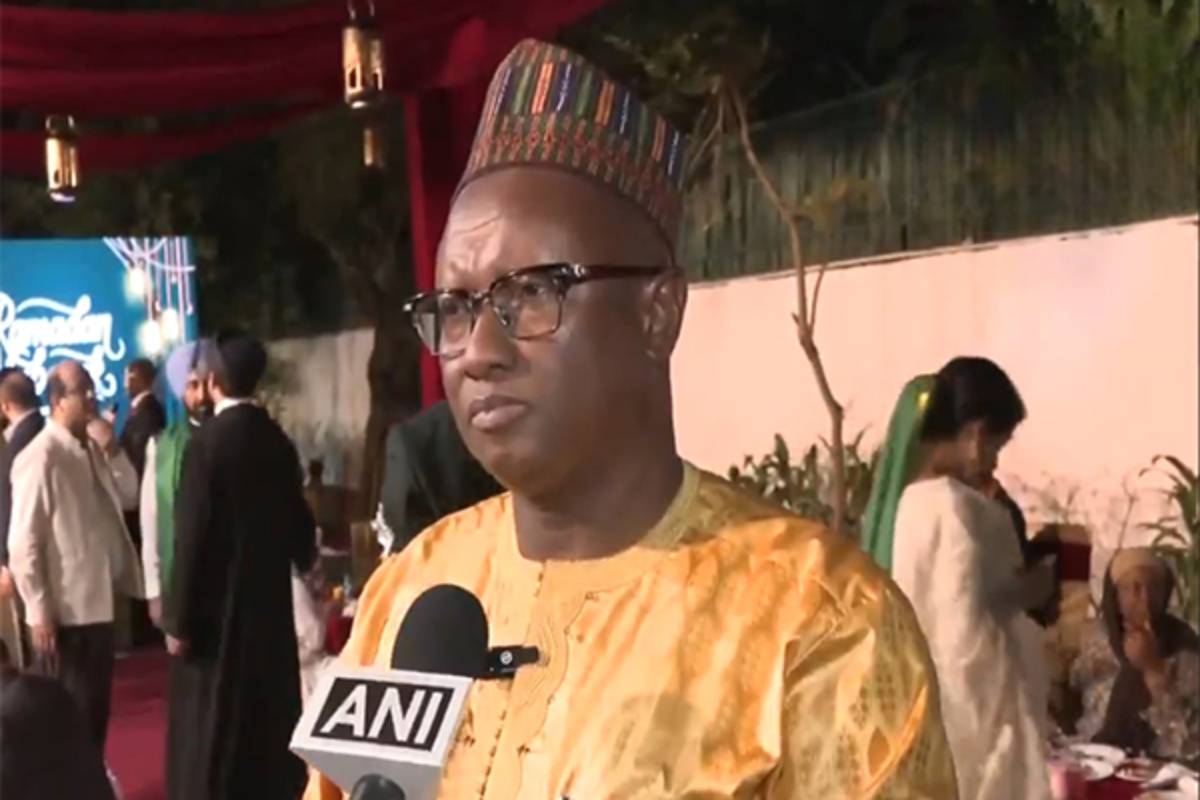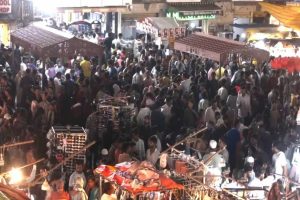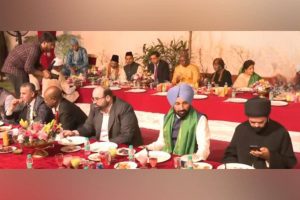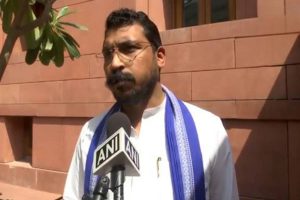In a grand celebration of Ramadan and communal harmony, the Indian Minorities Federation (IMF) hosted the ‘Sadbhavana Iftar’ at the residence of Rajya Sabha MP and IMF Convener Satnam Singh Sandhu in New Delhi. The event brought together ambassadors and diplomats from 19 Muslim-majority nations, underscoring India’s growing strategic, economic, and cultural ties with the Islamic world.
Ambassadors from Somalia, Morocco, Afghanistan, Syria, Gambia, Mali, Bangladesh, Sudan, Djibouti, Algeria, Malawi, Cameroon, Chad, Guinea, Iraq, Cote d’Ivoire, Tanzania, Nigeria, Iran, and the UAE attended the gathering alongside Islamic scholars, religious leaders, and intellectuals. Before breaking their fast, attendees offered prayers for global peace, harmony, and prosperity.
Diplomats praised Prime Minister Narendra Modi’s leadership, acknowledging India’s deepening relations with Muslim-majority nations, especially in economic and security cooperation. They noted that India’s trade with the Gulf and Organisation of Islamic Cooperation (OIC) nations exceeds $200 billion and highlighted the importance of India’s role in the Global South and international diplomacy.
Ambassadors commended India’s diplomatic stance in global conflicts, particularly its advocacy for a two-state solution in Palestine and humanitarian aid to Gaza. They also highlighted India’s role in Afghanistan, with investments in education, healthcare, and infrastructure aimed at improving lives.
Rajya Sabha MP Satnam Singh Sandhu reaffirmed India’s tradition of inclusivity, stating, “India has always been a multi-cultural, multi-religious society where every faith coexists in harmony. PM Modi has further strengthened this unity with his ‘Sabka Saath, Sabka Vikas’ mantra.”
Sudan’s Education Counsellor, Mohamed Ali Fazari, emphasized India’s leadership in the Global South, saying, “India is a leading nation in helping developing countries, and its relationship with African nations has strengthened over the years.”
Zimbabwe’s Minister Plenipotentiary, Edson Moyo, praised India’s advancements in artificial intelligence, digital payments, and economic diplomacy, stating, “India’s UPI payment system is a revolutionary model we are looking to introduce in Zimbabwe.”
Gambia’s High Commissioner, Mustapha Jawara, hailed PM Modi as a champion of the Global South, acknowledging India’s COVID-19 vaccine donations that saved countless lives. He credited India’s diplomatic efforts for preventing further escalation in the Russia-Ukraine conflict and called India a global leader in peacekeeping and humanitarian aid.
Iran’s Cultural Counsellor, Fariduddin Faridasr, spoke about India-Iran historical ties, emphasizing that both nations’ leaders are “deeply rooted in their culture and heritage.”
A representative from Iraq echoed the sentiment that India remains committed to inclusive growth, stating, “India’s minority communities have been cared for with affection. Under PM Modi, the nation is united in its mission for a developed India (Viksit Bharat).”
The ‘Sadbhavana Iftar’ served as a platform to reinforce India’s position as a global leader in peace, diplomacy, and economic collaboration with Muslim-majority nations, further strengthening bonds of brotherhood and cooperation.





